

Einstein Awarded Significant NIH Research Funding
NIH Awards Top $70 Million So Far in 2014
The National Institutes of Health (NIH) currently funds only about one in 10 grant proposals, making this the most competitive environment in memory for academic investigators. Yet Einstein researchers have enjoyed remarkable success over the past several months in winning new, multi-year NIH awards. Altogether, Einstein investigators were awarded NIH grants totaling $71.47 million during the period January through June 2014.
While several veteran researchers received highly coveted multimillion-dollar grants, no less important were the R01 grants garnered by younger Einstein investigators. R01s are the NIH's oldest grant mechanism and a major milestone in a young researcher's career.
The following faculty, both junior and senior, received new, multi-year grants:
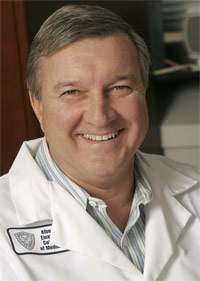
John Condeelis, Ph.D.John Condeelis, Ph.D., was awarded a $10.14 million program project grant to study how breast cancer cells move and spread in the body and how to predict which breast cancer tumors will metastasize. He and Drs. Jeff Pollard, Jeff Segall, Diane Cox, Anne Bresnick, Richard Stanley and Jon Backer have been studying breast cancer metastasis for the past 10 years at Einstein's Tumor Microenvironment and Metastasis Program. The new NIH grant will help Dr. Condeelis and his colleagues deepen their insights into metastasis. In particular, the researchers will study subpopulations of macrophages—immune cells that are present in primary and metastatic tumors and play key roles in enabling breast tumors to metastasize.
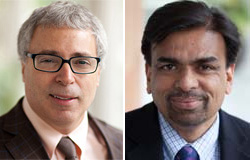
Nir Barzilai, M.D., and Joe Verghese, M.B.B.S.Nir Barzilai, M.D., and Joe Verghese, M.B.B.S., were awarded a $3.28 million NIH grant to study the role of "longevity genes" in protecting against frailty in aging. They will tap into a valuable resource: Einstein's Longevity Genes Project, which includes more than 500 Ashkenazi Jews over the age of 95, and 700 of their offspring. Studies of these individuals have already identified several gene variants that contribute to longevity. The NIH grant will fund efforts to identify gene variants that keep frailty at bay and to develop drugs that mimic the effect of those frailty-preventing genes.
Dr. Verghese is also director of the new Montefiore Einstein Center for the Aging Brain, located in Yonkers. There, Montefiore and Einstein scientists will team up to care for patients and investigate the causes of Alzheimer's disease, minimum cognitive impairment and other age-related neurological diseases. A ribbon-cutting ceremony, held last week at the new center, received online publicity.
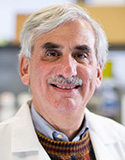
Leonard Augenlicht, Ph.D.Leonard Augenlicht, Ph.D., received a $3.22 million NIH grant to investigate how aging and poor nutrition interact to cause the mutations responsible for sporadic colon cancer, which accounts for 80 percent of colon cancer cases in developed countries. Dr. Augenlicht's goal is to better understand how tumors develop and to devise new approaches for preventing colon cancer and detecting it early.

Liise-anne Pirofski, M.D.Liise-anne Pirofski, M.D., was awarded $2.4 million to study how HIV infection and aging influence the effectiveness of a pneumococcal vaccine. HIV-infected individuals and the elderly are highly susceptible to infection by Streptococcus pneumoniae, the bacterial species mainly responsible for community-acquired pneumonia cases and hospital admissions for pneumonia. The Pirofski team will build on earlier work analyzing how HIV-infected and HIV-uninfected middle-aged and elderly adults respond to the vaccine Prevnar13, recommended for fighting pneumonia in infants, children and HIV-infected adults. The researchers also want to identify immunological and genetic biomarkers related to peoples' response to Prevnar13 that can help efforts to improve the vaccine's effectiveness and guide future vaccine use in adults.

Michelle Ng Gong, M.D.Michelle Ng Gong, M.D., was awarded a $1.93 million grant to conduct research on the prevention and early treatment of adult patients with acute respiratory distress syndrome (ARDS), with the goal of improving short- and long-term outcomes for these patients. Her research will occur within the Prevention and Early Treatment of Acute Lung Injury (PETAL) Clinical Trials Network, in which Einstein/Montefiore is one of the primary participating clinical centers. ARDS is a severe form of respiratory failure and lung injury that typically develops in people who are admitted to the hospital for common conditions such as pneumonia, severe infections, bleeding, trauma or other types of acute illness.
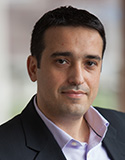
Evripidis Gavathiotis, Ph.D.Evripidis Gavathiotis, Ph.D., was awarded a $1.73 million R01 grant to investigate a novel pharmacological strategy for killing cancer cells by activating the protein BAX—a key player in apoptosis, the process by which cells self-destruct. BAX performs its deadly work by puncturing the membranes of mitochondria, the energy power plants inside cells. Dr. Gavathiotis has identified key spots on BAX that could be targeted to turn the protein on and off. He has recently been trying to turn on BAX in cancer cells, which usually suppress BAX activation and shield themselves from apoptosis. He has already made progress: In 2012, he and his colleagues reported in Nature Chemical Biology that a small molecule called BAM7 can activate BAX and induce apoptosis. His NIH grant will fund efforts to develop a prototype therapeutic based on BAM7 for use against blood and solid-tumor cancers.
Peter Cole, M.D., was awarded a $1.73 million R01 NIH grant to study why methotrexate—a mainstay drug for treating children with leukemia—often leaves cancer survivors with permanent deficits in cognitive function. Using an animal model that he developed, Dr. Cole will study how methotrexate causes cognitive dysfunction and will test interventions that may prevent the drug from causing this potentially devastating side effect.
Additionally, the NIH recently notified a third junior investigator that his new R01 grant application will soon be funded. The Einstein website will carry further details at the appropriate time.
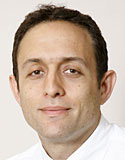
Peter Cole, M.D.Investigators whose work receives critical support from the Harold and Muriel Block Institute for Clinical and Translational Research (ICTR) at Einstein and Montefiore have also received recent NIH grants. The NIH-funded ICTR is part of a national consortium intended to reduce the time between discoveries and treatments and to train the next generation of clinical researchers. To learn more about these researchers, read "Spotlight on Success" in the July 2014 issue of ICTR Connections
Finally, not all NIH grants fund scientists. Some pay for instruments they use to carry out research. In Einstein's case, this has meant three recent "shared instrument" grants. One such grant, for $595,000, will pay to significantly upgrade the 17-year-old NMR (nuclear magnetic resonance) instrument in Einstein's biochemistry department. NMR helps biologists to map the structure of individual proteins or protein complexes and then design new molecules to inhibit or activate those proteins. Some two dozen Einstein researchers will use the upgraded NMR device as part of our emerging Center for Experimental Therapeutics.
The other two NIH shared instrument grants will purchase new devices for Einstein's Analytical Imaging Facility. A $501,000 grant will allow Einstein to acquire a PALM/STORM imaging system—a new microscopy system that uses single molecule localization to achieve super-resolution. The PALM/STORM technology will allow Einstein scientists to study cellular details previously thought impossible to visualize using light microscopy. In addition, an NIH grant for $459,000 will purchase a state-of-the-art high-resolution transmission electron microscope. This microscope will allow its users to obtain high resolution imaging of cells, organelles or pathogens under different experimental conditions. These grants enable Einstein investigators to use cutting edge instrumentation without incurring the considerable cost of purchase using College of Medicine funds.
Posted on: Friday, June 27, 2014

Tablet Blog